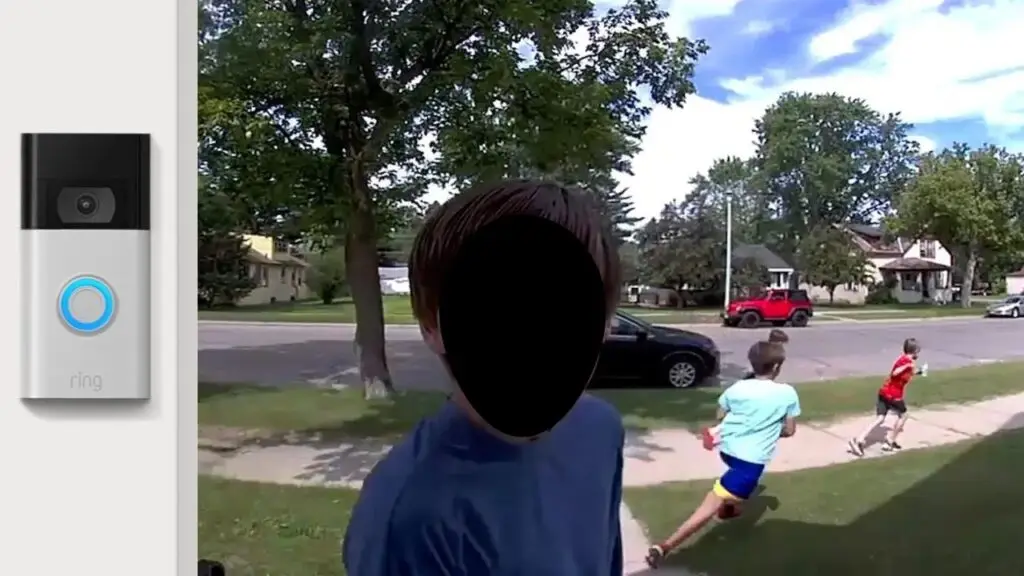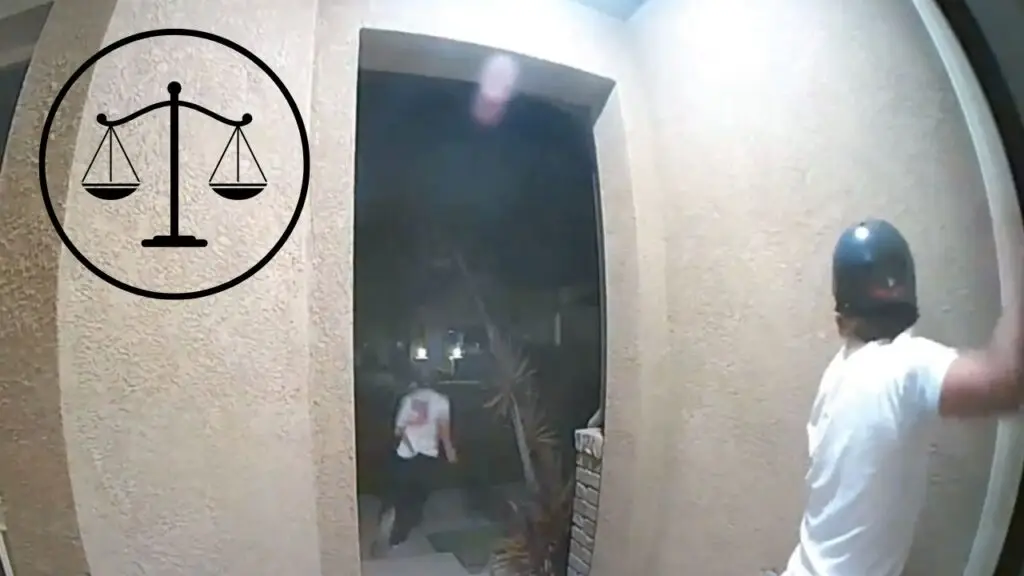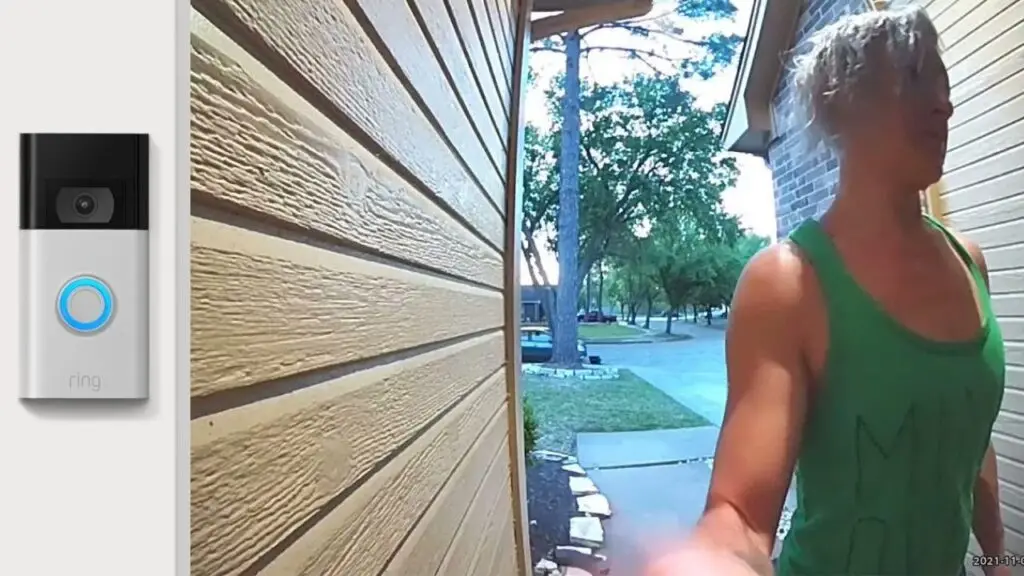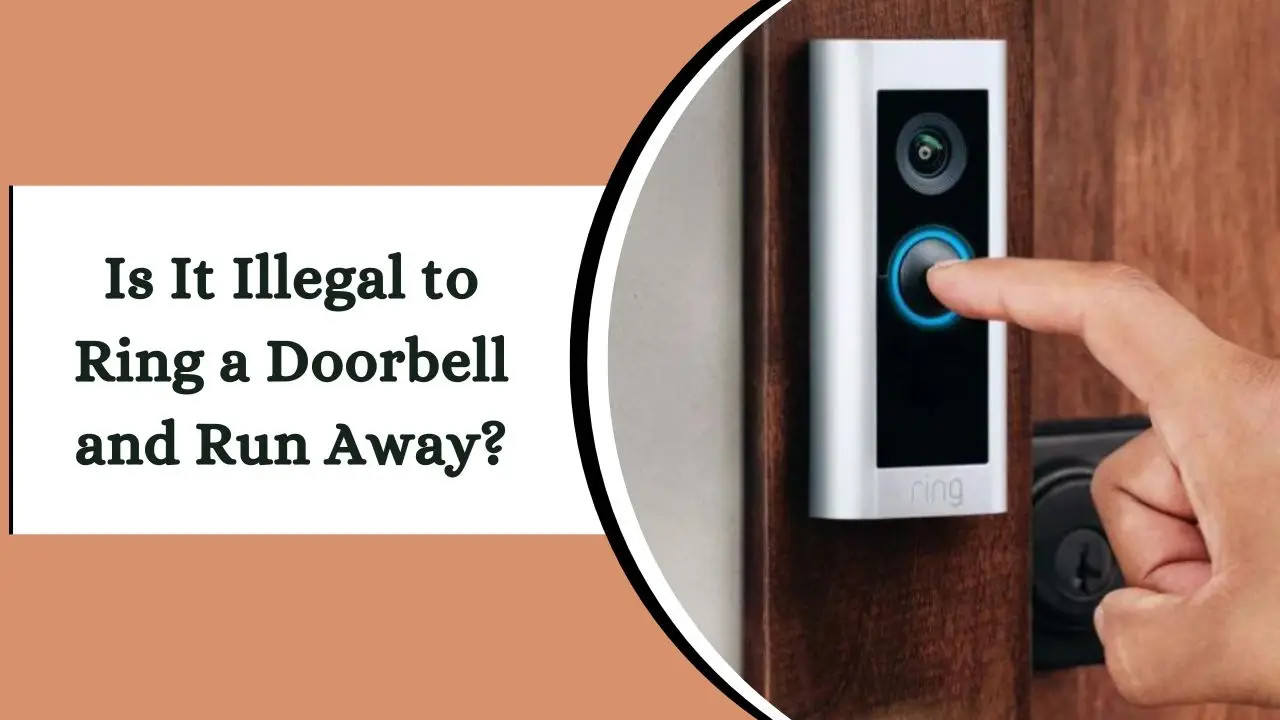Ringing a doorbell and running away, often seen as a harmless prank, can become illegal if it involves trespassing, disturbing the peace, or harassment.
The legality varies by location and intent, so understanding local laws is essential. While typically a minor offence, repeated incidents can lead to legal consequences.
Is It Illegal to Ring Someone’s Doorbell?

The legality of ringing a doorbell and then quickly leaving, often called “ding-dong ditch,” depends on intent and impact. Generally, just ringing a doorbell isn’t illegal.
However, it becomes problematic if it involves trespassing, disturbing the peace, or harassing residents. Local laws and ordinances, especially those regarding noise and disorderly conduct, often address such behaviour.
From personal experience, while pranks were common in my neighbourhood, I learned the importance of respecting boundaries.
What seems like harmless fun can lead to unintended consequences. It’s crucial to balance playful actions with responsibility towards the community to avoid complications.
The Timeless Charm of Ding-Dong Ditch: A Common Childhood Prank

Ringing a doorbell and running away, known as a ding-dong ditch, is a classic childhood prank. It’s about the thrill and nostalgia of youthful mischief. However, this fun can have consequences.
There is a fine line between harmless fun and disruptive behaviour. Growing up, I learned the importance of balancing pranks with responsibility.
What might seem amusing to some can be distressing to others. Respecting boundaries and knowing when a joke goes too far is crucial. This understanding adds depth to our sense of community and empathy.
Ding-Dong Ditch Pranks: Legal, Local, And Social Dimensions

1. Legal Perspective:
The legality of ding-dong ditch pranks depends on factors like trespassing, intent to harass, and disturbances. Simply ringing a doorbell isn’t usually a crime, but it can become one if it involves trespassing or significant disturbances.
Legal consequences can include charges or civil penalties. From my experience, the prank’s intention is crucial. A harmless prank can quickly become serious if seen as harassment.
It’s important to understand that ringing a doorbell, especially with trespassing or repeated disturbances, requires responsibility and awareness.
2. Local Regulations:
The legality of doorbell ditching varies by local ordinances and regulations, with some municipalities having specific laws on noise and disorderly conduct. It’s crucial to know your area’s rules, as interpretations and enforcement differ.
From my experience in community management, local norms and laws significantly influence how these pranks are perceived and handled, emphasizing the need to be informed and respectful of community standards.
3. Potential Consequences:
Law enforcement responses to doorbell ditching vary, from warnings to serious consequences, depending on circumstances and local laws. Civil penalties, including fines, may apply, and repeated incidents can lead to a negative legal record.
From my experience in community services, I’ve seen how this prank can escalate, affecting both individuals and their community standing. Understanding local laws and their enforcement is crucial, as consequences can significantly vary based on the community’s stance.
4. Cultural and Social Perspectives:
Beyond legal issues, doorbell ditching has social implications, disrupting neighbourhood peace and straining community relations. Public opinion varies—some see it as harmless fun, others as a nuisance.
Balancing pranks with responsibility and respect for property is essential. Culturally, a community’s view reflects its values and dynamics. In my community outreach work, I’ve seen how such acts influence neighbourhood fabric.
Perceptions differ based on cultural and social contexts, emphasizing the importance of understanding and respecting diverse viewpoints.
5. Alternatives and Education:
Addressing doorbell ditching requires promoting positive behaviour and educating about its legal and social impacts. Encouraging responsibility and highlighting the effects on neighbours are crucial steps.
In my youth engagement experience, sharing personal stories effectively teaches respect and empathy. By offering respectful prank alternatives, we can help young people create a harmonious environment that respects everyone’s boundaries.
Neighbour’s Repeated Doorbell Pranks: Legality Concerns?

Determining the legality of a neighbour’s repeated doorbell pranks can be challenging due to the lack of specific information. The legality depends on various factors such as location, time of day, and how often the incidents occur.
To address this issue effectively, more details are needed to understand the situation better and find the right approach. In such cases, contacting local law enforcement via their non-emergency number during business hours can be a wise step. Speaking with officers who can take appropriate action is essential.
From my experience in community relations, whether an activity is illegal or just annoying significantly depends on the country or city and its laws. It’s important to gather all relevant details before proceeding.
Consulting local authorities often provides necessary insights into how to handle such situations, ensuring that responses are both suitable and proportionate to the circumstances.
More Things People Look For:
What Is It Called When You Ring a Doorbell and Run Away?
The act of ringing someone’s doorbell and then running away is commonly referred to as “ding-dong ditching.” This prank, often carried out by children, combines the playful nature of childhood with the potential for social and legal consequences.
Can You Get in Trouble for Ringing Someone’s Doorbell?
Yes, ringing someone’s doorbell can lead to trouble, particularly when it crosses into harassment. Repeatedly ringing a doorbell, disturbing someone’s sleep, or intentionally causing a nuisance can be considered harassment.
While not every instance is a serious crime, it can be treated as a misdemeanour depending on the frequency and intent behind the action.
What Is Ringing Someone’s Doorbell and Running Away?
“Ding-dong ditching” describes a prank where individuals, typically minors, ring a doorbell and then quickly run away before being seen.
Although often viewed as harmless fun, this act can be considered trespassing or harassment, especially if it causes distress to the homeowners. It highlights how a seemingly innocent prank can blur the lines of legality and personal boundaries.
Is It Rude to Ring Someone’s Doorbell?
Persistently ringing someone’s doorbell, especially without a prompt response, can be considered rude. A considerate approach involves ringing the doorbell once or twice and leaving quietly if there is no answer. This practice ensures that the effort to gain attention does not become a disturbance or nuisance.
Our Final Take
Ringing a doorbell and running away can be more than just a prank; it may involve trespassing or harassment, leading to legal consequences.
Understanding local laws and respecting neighbours are key to avoiding trouble.

